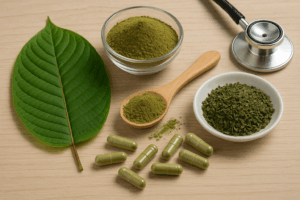Alcoholism is not an easy topic to approach. If you or a loved one has a chronic drinking problem, we know how hard it is to talk about and how hard it is to quit. We at Direct2Recovery will never judge you — we will only offer the resources to help. Part of that is helping you understand exactly what alcoholism is. So is alcoholism a disease or a disorder?
What is a Disease and a Disorder?
A disease is defined by Merriam-Webster as “a condition of the living animal or plant body or of one of its parts that impairs normal functioning and is typically manifested by distinguishing signs and symptoms.”
Whereas as disorder is defined as “to disturb the order of,” or to “disturb the regular or normal functions of…”
So where does alcoholism fall?
Is Alcoholism A Disease?
The official term for alcoholism is “alcohol use disorder,” but going primarily off of the denotation, alcoholism is a disease and a disorder. Why is that? Well, addiction is the final stage of alcoholism. At this point, the alcoholic no longer is drinking for pleasure but because of a physical and psychological need to drink. This addiction commonly disrupts the regular and normal functions of your body and life, while also impairing normal functioning.
In more clarifying terms, alcoholism is a disorder that is often treated using the disease model.
What is the Disease Model?
The National Council on Alcoholism and Drug Dependence likens alcohol use disorder through the disease model.
The disease model of alcoholism is dependent on it being a physical addiction that can’t be controlled. This means cycles of physical cravings and withdrawal symptoms, including shaking, sweating, nausea and dizziness, need to be present for alcoholism to be classified as a physical disease.
However, the disease model may not take into account the reasons why the addiction was formed. For all addictions, cultural and environmental factors need to be considered, as do traumatic events. This is why alcoholism is a gray area in many studies — reasons people become addicted to drugs and alcohol can be more than physical.
Risk Factors That May Lead to Addiction
A risk factor simply means that someone who experiences any of the following may be more susceptible to trying illicit substances. Matching one of more of these risk factors is not an indicator that a loved one is using drugs. Like mentioned above, these risk factors take everything into account — physical, emotional, mental, and behavioral triggers — that may lead to drug abuse.
Risk factors of addiction include:
- Current or previous misuse of prescription opioids such as morphine or oxycodone
- Family history of addiction or substance use disorders
- Personal experience with drug use or experimentation
- History with mental health disorders (depression, anxiety, etc.)
- Risk-taking or thrill-seeking behavior
- Severe pressures at home or at work
- Poverty or unemployment
- Previous criminal activity
- Emotional trauma or abuse
- Stressful life or family situations
Again, if you or a loved one have experienced any of the above risk factors, it does not mean you will get addicted to drugs. These are only common factors that have led to drug abuse and addiction in the other cases.
Signs of Alcoholism
If you notice any of the risk factors, check for these common signs of alcohol use disorder.
The individual experiences increased tolerance for alcohol. This means that they have to drink more in order to get the same effects.
The individual has a strong compulsion to drink and will often drink more than they intended to. Sometimes, individuals try to hide the extent of their drinking as well or feel guilty about drinking.
They will often experience withdrawal symptoms if they attempt to significantly reduce or quit alcohol. Withdrawal symptoms can result in unpleasant changes in behavior and physical reactions, such as shakiness, sweating, and agitation.
If you want to learn more, we have a blog dedicated to the stages and signs of alcoholism. You can learn more by reading it here.
Treatment Options Near You
If you see any of these signs, reach out to your loved one about their problem and support them in seeking treatment. You can also get in touch with us here at Direct2Recovery to find out more about the treatment options available or learn more about alcoholism. Knowledge is power and we want to help everyone learn about addiction and overcome it. Give us a call to explore your options.





